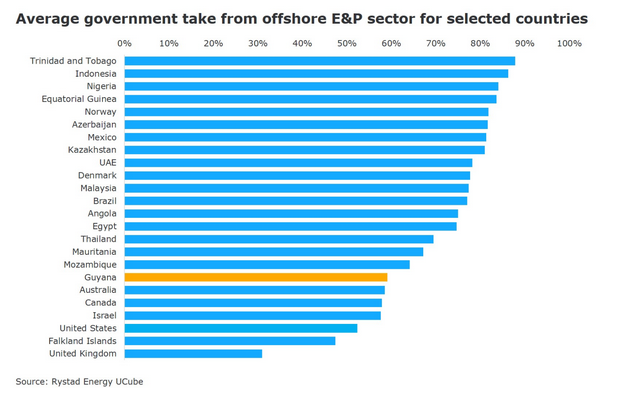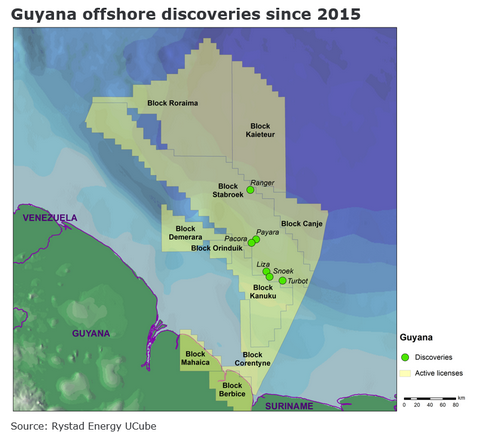(Rystad, 19.Apr.2018) — Rystad Energy analysis shows that Guyana’s fiscal regime is favorable to oil companies when compared to mature oil and gas development countries but is in line when compared with other countries of equivalent maturity.
The International Monetary Fund, quoted early last week by Reuters, argued that the deal granted to ExxonMobil to develop the giant Liza discovery was overly “favorable” and suggested the country should consider rewriting its tax law. Based on this statement, Rystad Energy has compared the fiscal regime in question with those of other key producers.
“ExxonMobil’s discovery of the Liza field in 2015 truly put Guyana on the global energy map,” says Espen Erlingsen, Head of Upstream Research at Rystad Energy. “We predict Guyana’s total oil production to surpass 600,000 barrels per day by the end of the next decade. These volumes could generate total annual revenue of $15 billion from the oil and gas industry. After all costs are paid, around $10 billion of profit could thus be split between the companies and the government.”
In the current fiscal regime, the government collects its share through a 2% royalty and a 50% profit oil levy. Rystad Energy estimates that this will give the government 60% of the profit from the various projects (government take), while the remaining 40% will go to international E&P companies.

“The average government take of 60% in Guyana is indeed favorable when compared to other large offshore producers. On average, the government take for all offshore projects is around 75%, while rates in major producing countries such as Nigeria, Norway, Mexico, Indonesia and Trinidad are all above 80%,” says Erlingsen. “However, for countries that only recently opened up for E&P activities – such as the Falkland Islands, Israel, Mozambique and Mauritania – the government take is in the range of 50% to 65%.”
In order to attract investments from international E&P companies to kick-start their offshore ambitions, frontier countries often need to sweeten the pot with favorable fiscal terms. Guyana has followed this pattern.

“In retrospect, one can argue that the government has succeeded in generating the activity they were hoping for,” says Erlingsen. “The question going forward will be whether the Guyanese government – emboldened by its stunning exploration success over the past three years – will elect to alter its fiscal regime when future licenses are awarded.”
***